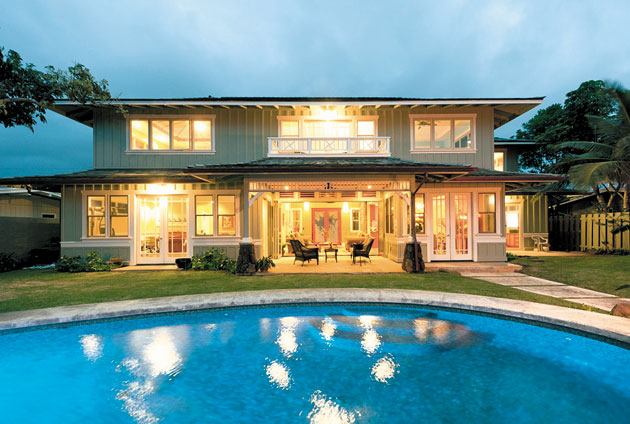People born in the post-World War II years between 1946 and 1964 — or baby boomers — are entering or nearing retirement age. And research shows that Americans have a strong preference to remain in their current residence for as long as possible as they grow older, meaning they will need to remodel or adapt their homes to meet their changing abilities and circumstances. This is called aging-in-place.
Aging-in-place is generally defined as living in one’s home safely, comfortably and independently, regardless of age, income or level of mobility.
It can be an agonizing decision to have to choose whether to move or stay put. Older Americans have always been the least inclined to move, compared to homeowners of any other age group.
Research from the National Association of Home Builders (NAHB) found that more than 50 percent of those ages 55 or older have lived in their homes longer than 10 years.
Many older homeowners would prefer to stay close to friends and family, value the community that they have been a part of for many years and don’t want to start over someplace new. Also, some may have to stay where they presently live because of financial concerns and limitations imposed by living on fixed incomes.
Very simply, “getting around” is the key to making a house compatible to the needs of an aging-in-place occupant. Remodelers report that the most common projects for their aging-in-place clients are making more accessible accommodations, installing brighter lighting, widening doors and hallways, adding railings or grab bars to prevent falls, changing floor coverings to add traction and eliminate slippery surfaces and installing ease-of-reach and bend systems.

Home builders and remodelers are ready for this large population who will seek their services to help them live conveniently and safely in the home and community where they feel most comfortable.
To address the unique demands of the burgeoning aging-in-place market, NAHB Remodelers, in collaboration with the NAHB Home Innovation Research Labs, the NAHB Seniors Housing Council and AARP, developed the Certified Aging-in-Place Specialists (CAPS) program. This designation program equips remodelers with the marketing, technical and customer service skills required to help homeowners, regardless of age, maintain their independence and increase security in their present homes.
CAPS remodelers and builders have been trained in the unique needs of the older adult population, aging-in-place home modifications and common remodeling expenditures and projects. They have been taught the strategies and techniques for designing and building aesthetically enriching, barrier-free living environments, and given the resources needed to provide comprehensive and practical aging-in-place solutions.
Finally, CAPS graduates pledge to uphold a code of ethics and are required to maintain their designation by attending continuing education programs and participating in community service.
To find an NAHB builder who holds a CAPS professional designation on Oahu, contact the Building Industry
Association of Hawaii at biahawaii.org. You can also search for Certified Aging-In-Place Specialist designation holders at www.nahb.org/designationsdirectory.
Karen Nakamura is CEO of the Building Industry Association of Hawaii.